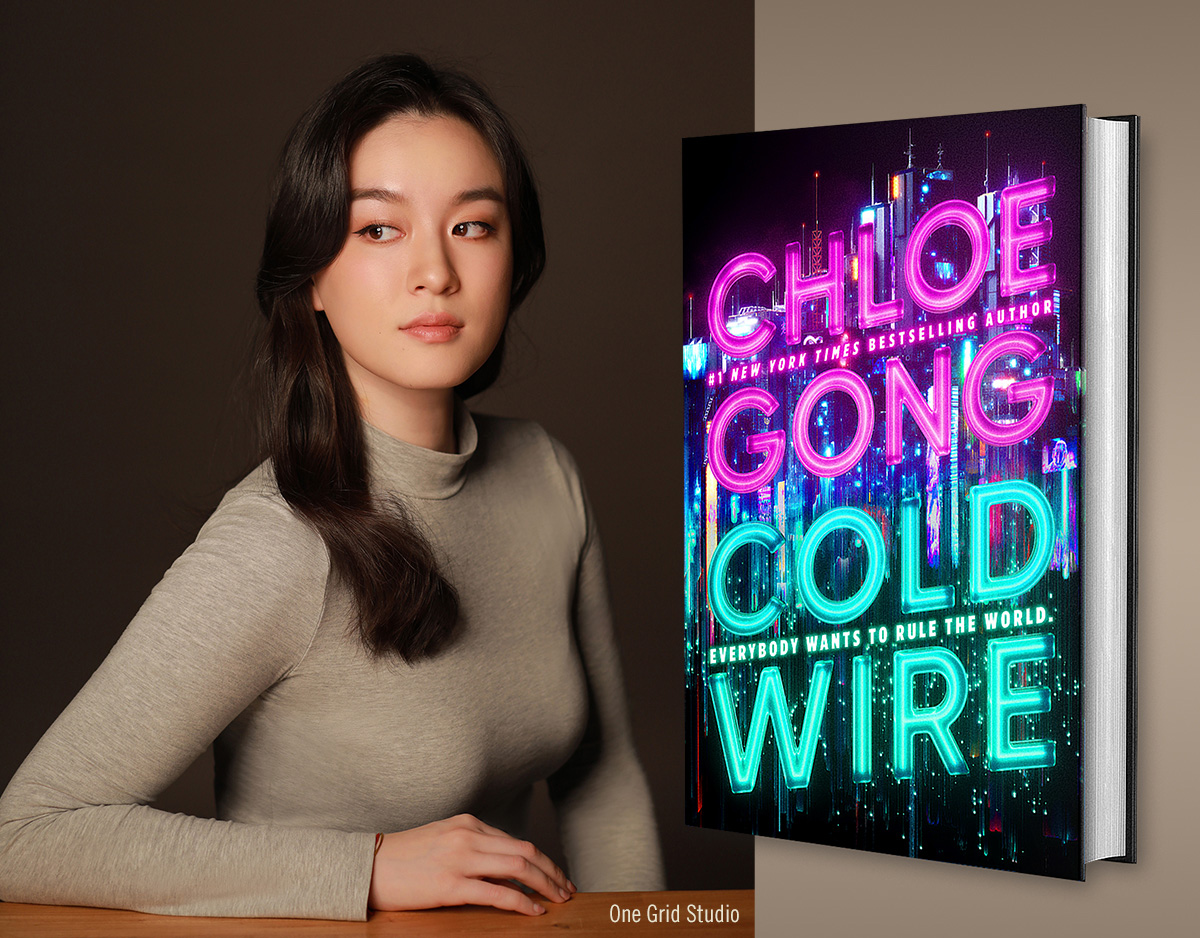Q&A: Chloe Gong on identity, international relations, and virtual reality in 'Coldwire'
In this exclusive interview, Chloe Gong talks with SLJ about her writing process and the themes in her new dystopian novel Coldwire, publishing in November.

In this exclusive interview, Chloe Gong talks with SLJ about the themes in and writing process for her new dystopian novel Coldwire, publishing November 4th. This interview has been edited for length and clarity.
Although you’ve written in the science fiction and fantasy space before, your debut, These Violent Delights, was historical, whereas Coldwire is set in the future. How is it different writing about a dystopian landscape than writing your previous novels?
The writing process has been similar when it comes to maintaining my “style” in YA SFF: complex character dynamics, intensive worldbuilding, angst and betrayal and drama. But the way I’ve approached the projects has felt hugely different! Because These Violent Delights was historical, I started working from the research first. I needed to understand the era and ensure that my plot enforced the historical aspect rather than running off on its own. The characters’ motivations, the setting description, the outcome of the storyline—they all lead back to one major historical event that intrigued me enough to write a series exploring it.
Meanwhile, writing dystopian meant having freedom in my themes and ideas. Coldwire emerged as a thought experiment, so the sandbox was mine to build out from. How does certain technology change a society? How do oppressions or privileges enforced by the state influence a character’s wants and desires? From there on, I invent elements of the world that tackle these questions most effectively.
Identity plays a major role in the novel. There are options people can purchase to change their avatar and how people perceive them upcountry, but can you share your inspiration for the Ward system and how it impacts the way Lia and Eirale see themselves?
When I set out to write Coldwire, there was a very specific aim I had in mind: I wanted it to be a book involving bilateral international relations. Many of my favorite sci-fi and dystopian books explore one government and its impact on the masses. What if, instead, it was about two governments at war, and the people who live in that shadow? I was an international relations major in college, and I really loved the academic side—the theories and the thinkpieces—of real-world politics.
Coldwire opens a few decades into a cold war between two superpower countries, Medaluo and Atahua. Our main characters Lia and Eirale are ethnically Medan, but they consider themselves Atahuan. They are loyal to Atahua, but Atahua is not loyal to them. This impacts the two protagonists immensely as they move through the world, and the system of being a “ward” of the state serves to emphasize how they are treated in their society.
When creating the StrangeLoom virtual reality, you grounded it securely in the real world, mirroring streets and putting limits on changes people could make. What made you tie down your virtual world with all these limitations?
Personally, I thought it was the most interesting way to explore virtual reality! In Coldwire, “upcountry” feels like real life for most people—they eat, sleep, and go to work in virtual, and for all intents and purposes, it is supposed to replace their participation in the physical world. While our own society is moving toward such heavy dependence on technology, I wanted to push us just one more inch over into a speculative future. It needed to be grounded enough that we can imagine being convinced by this society.
You’ve written for both adults and young adults. What would you say is your favorite part about writing for teens?
The readers! I discovered my love for reading in the young adult space when I was a teenager myself, so maybe I’m biased, but I think teenagers are so smart, dedicated, and passionate about the media they love. Writing for them is unlike writing for any other cohort. Meeting them in person at events brings me so much joy. I adore writing for adults, too, because it lets me stretch another part of my brain, but there is something beautiful about coming back to the themes of young adulthood and talking about it with readers: the high-highs and low-lows of the teenage experience will forever be so important to me.
When can we expect the next book in the Coldwire series?
The next book in the Coldwire trilogy is expected Fall 2026, and I am so excited. I just turned in the latest draft to my editor, and I’m really loving how it’s shaping up. The ending is explosive, and I can’t wait for readers to yell at me asking when Book 3 is coming out.
RELATED
The job outlook in 2030: Librarians will be in demand
The job outlook in 2030: Librarians will be in demand
ALREADY A SUBSCRIBER? LOG IN
We are currently offering this content for free. Sign up now to activate your personal profile, where you can save articles for future viewing






Add Comment :-
Be the first reader to comment.
Comment Policy:
Comment should not be empty !!!